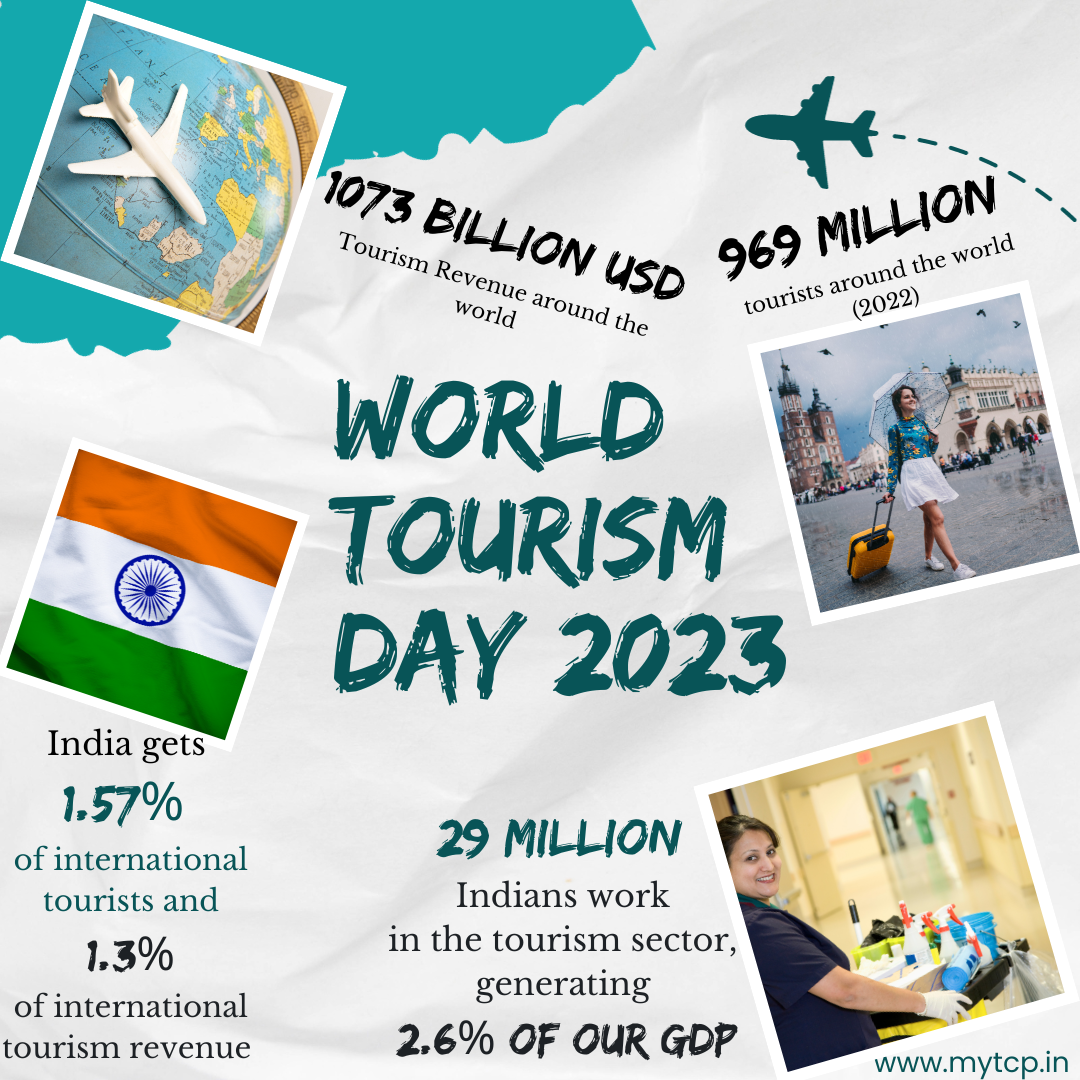Since 1980, September 27 marks World Tourism Day every year. The date marks the anniversary of the adoption of the Statutes of the Organization in 1970, paving the way for the establishment of UNWTO five years later.
This year, the UN World Tourism Organization (UNWTO) is organising the main event at Riyadh, Saudi Arabia. The focus this year is investments for people, planet, and prosperity.

What is tourism?
When we visit a place temporarily, we are “touring” it. People who do this touring are called tourists.
When we travel, we need many services – train/bus/air/car bookings to get to the place, a hotel or hostel to stay at, a local sightseeing vehicle, perhaps a tourist guide, buying tickets to the local attractions – all these services come under tourism as an industry.
Why is tourism important?
Macau gets 48.4% of its GDP from tourism. Maldives gets 25% (one-fourth) of its total GDP from tourism.
It is easy to guess that tourists bring revenue. They spend money to come, stay, travel, and shop.
But tourism is not just important for its economic value. It allows people to interact with each other, understand different cultures, and see the beauty of different civilisations. When we come to India, we are astounded by the sheer variety and antiquity of monuments. Likewise, tourists go to the Stonehenge or the pyramids of Africa.
Tourism leads to a cultural exchange. In a largely global world, it helps us understand people better.
For the tourist, of course, there is a lot of fun and enjoyment. Remember the excitement you feel just before a trip? Then the exhilaration of doing the various activities, and the disappointment when we have to get back? Tourists truly enjoy their time while traveling. It helps us feel better and happier.

How does tourism generate money?

Let’s go on a trip (metaphorically, of course). Let’s see how and where we spend money. Each penny we spend is tourism revenue.
Planning the Trip – Visa Fees
We start by deciding a destination. If it is a foreign country that needs a visa, we start our spending by applying for a visa. Most countries charge a small fee to process this visa. Our expenses likely begin with visa fees.
Travel and Stay
It is easy to understand that we need a place to stay and a means to get there. It could be by train, bus, or flight. We might stay with friends, at a hostel, a small Bed and breakfast, or a larger hotel. In each case, we are spending money.
Local Sightseeing – Local transport, Food, and Fees
When we start exploring our destination, we need a local transport method to get around. Whether we choose public transport or a private taxi, we need to spend money. Likewise, to visit the tourist attractions, we need to spend money.
Shopping
A place might be famous for something. Or, we might pick up a few fridge magnets for friends back home. Either way, shopping is done by most tourists.
Types of Tourism

First, let’s understand a few key terms:
Domestic: Travel within the same country.
International: Travel to another country.
Inbound: People coming IN to a destination / country.
Outbound: People going OUT from that country (to explore other countries).
The grid above shows the main types of tourism. This classification is largely on the purpose of travel.
Each purpose also needs a different facilitation. For example, medical tourism needs great hospitals near international airports and local long term stay options. Adventure tourism needs access to equipment, guides, and safety measures.
As we can see, tourism is a very big industry. It has been affected by the Covid pandemic, but is recovering now. You can explore some key statistics about tourism at the WTO website here and here.
All images, except where indicated, made by TCP. All figures from WTO.

